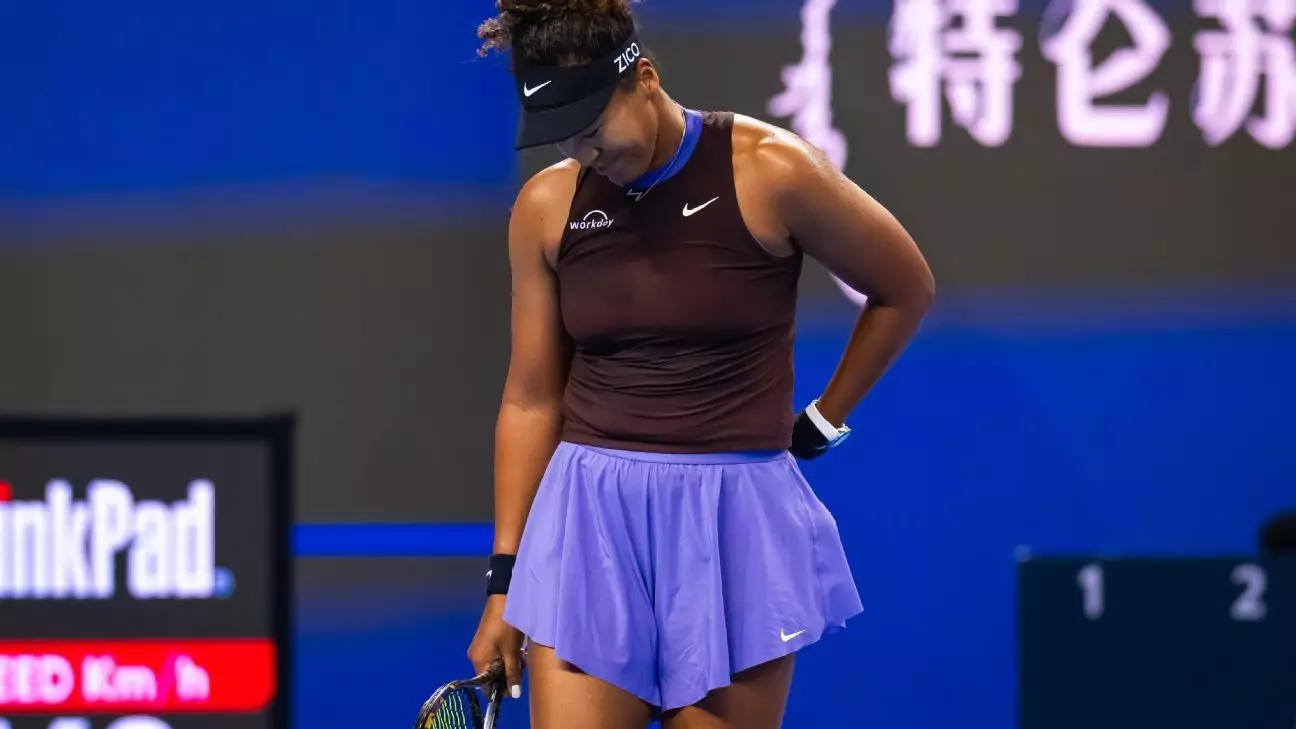Naomi Osaka Withdraws from Billie Jean King Cup: A Season of Challenges and Recovery
Hey there, fellow tennis enthusiast! Today, I want to share with you a story that’s been making waves in the sports world—a tale of resilience, recovery, and the tough decisions athletes sometimes have to make. It’s all about Naomi Osaka, the tennis star who has recently decided to step back from the Billie Jean King Cup finals in Spain. This decision isn’t just another headline; it’s a significant moment in her season filled with ups and downs. Let’s dive into how she’s navigating this challenging time.
As someone who’s been a fan of Osaka’s since her breakthrough days, I can’t help but feel a mix of concern and admiration for her. She’s had quite the journey this season, facing injuries that would make anyone rethink their career path. But here she is, choosing to focus on recovery and set her sights on the upcoming Australian Open—a tournament where she’s already made her mark twice. Her absence during the Asian swing of the WTA tour has sparked conversations about her health and what lies ahead for her in the world of tennis.
Naomi’s story is not just about one athlete’s struggle; it’s a reminder of the physical toll that professional sports can take on even the most talented players. When she sustained a back injury at the China Open, it seemed manageable at first. However, deeper investigations revealed something more concerning: a bulging disc and ruptured abdominal muscles. These findings have forced Naomi to prioritize her health over competition—an incredibly tough call for any athlete in her position.
Key Takeaways
- Naomi Osaka has withdrawn from the Billie Jean King Cup finals due to serious injuries.
- Her current focus is on recovery and preparing for the Australian Open.
- Osaka’s decision highlights the balance athletes must find between competition and health.
A Season Marked by Injuries
The extent of Osaka’s injuries became apparent after an MRI in Beijing confirmed both a bulging disc and ruptured abdominal muscles. Understandingly, these revelations have played a huge role in her decision-making process. Speaking candidly with reporters in Tokyo, Naomi expressed how disheartening it was to face these challenges. Yet, she acknowledged that stepping back was necessary for her long-term health. This kind of strategic management is essential if athletes like Osaka are to recover fully and return stronger.
It’s easy to overlook how demanding competitive sports can be until you see someone like Naomi go through it. The physical demands aren’t just about strength or endurance; they’re also about recovering from setbacks without compromising future performance. For Osaka, this means taking calculated steps now so that when she returns to play, she’s doing so without risking further injury. It’s a tough balancing act but one that’s necessary for any athlete aiming for longevity in their career.
The Journey Back to Form
This year has been particularly testing for Osaka as she works tirelessly to regain her form post-maternity break. Currently ranked 56th globally, she’s had a rollercoaster ride trying to climb back up the rankings ladder. Her decision to partner with Patrick Mouratoglou reflects her commitment to evolving and adapting her game—it’s a sign of both ambition and adaptability. However, such transitions require patience and can be complicated by physical setbacks like those she’s dealing with now.

Working with Mouratoglou brings new perspectives and strategies into Naomi’s game plan. Still, adapting to these changes takes time—especially when you’re dealing with injuries that demand your full attention. It’s about finding that sweet spot where she can benefit from new coaching insights while also giving her body the time it needs to heal properly. It’s an uphill battle but one that promises rewards if navigated carefully.
The Emotional Toll
Beyond the physical challenges, there’s an emotional layer that can’t be ignored. The decision not to compete in high-stakes matches like the Billie Jean King Cup finals weighs heavily on any athlete’s mind. For Osaka, missing out on such opportunities adds complexity to an already challenging season. Yet as she’s shared openly, prioritizing health over ambition was not an easy choice but one she stands by firmly.
This kind of clarity is something many athletes eventually come to terms with throughout their careers—knowing when it’s time to push forward versus when stepping back is wiser long-term strategy. In Naomi’s case, ensuring she’s fit for future competitions outweighs immediate participation pressures—a lesson in maturity that many fans deeply respect.
A Look Towards 2024
As we anticipate exciting matches without Osaka’s presence this season, there’s much hope surrounding her eventual return come 2024—and specifically at events like Australia Open which hold personal significance given past victories there! Her commitment towards healing sets stage perfectly for what could be another stellar year if everything goes according plan health-wise combined alongside new coaching insights brought forth under Patrick Mouratoglou’s guidance.

The road ahead may seem daunting now but prioritizing wellness along with fresh strategic approaches signals determination paving potential paths toward renewed success down line! Fans worldwide eagerly await seeing how these efforts translate once back competing full throttle again soon enough hopefully reinvigorated both mentally physically alike ready tackle whatever challenges lie next horizon!
Final Thoughts
In conclusion, Naomi Osaka’s choice underscores an important aspect often overlooked within professional sporting realms—the delicate balancing act between maintaining competitive edge while safeguarding personal wellbeing simultaneously crucial achieving sustainable career longevity ultimately benefitting everyone involved including fans themselves too witnessing favorite athletes thriving both on off courts alike! As anticipation builds surrounding much-awaited return next chapters unfold surely bright filled promise resilience strength character defining hallmarks truly inspiring all follow suit diligently cheering every step way forward inevitably leading towards exciting new beginnings!
Naomi Osaka
Billie Jean King Cup
tennis injuries
athlete recovery
sports psychology


Leave a Reply